
Seed Cycling Chart Drawe
Seed benefits. Bottom line. Seed cycling is a growing trend claimed to balance hormones, boost fertility, and ease symptoms of menopause. It involves eating flax, pumpkin, sesame, and sunflower.

Seed to Table Cycle chart Growing Organic Food, 1st Grade Science
Day one of your cycle is the day you start bleeding. You then count upwards until you start bleeding again, which then becomes day 1. The average cycle is 28 days long, but it can vary from 24 to 30. If your cycle is long or short, simply divide it by 2 to understand your two phases. The Follicular Phase is the first half (typically days 1-14).
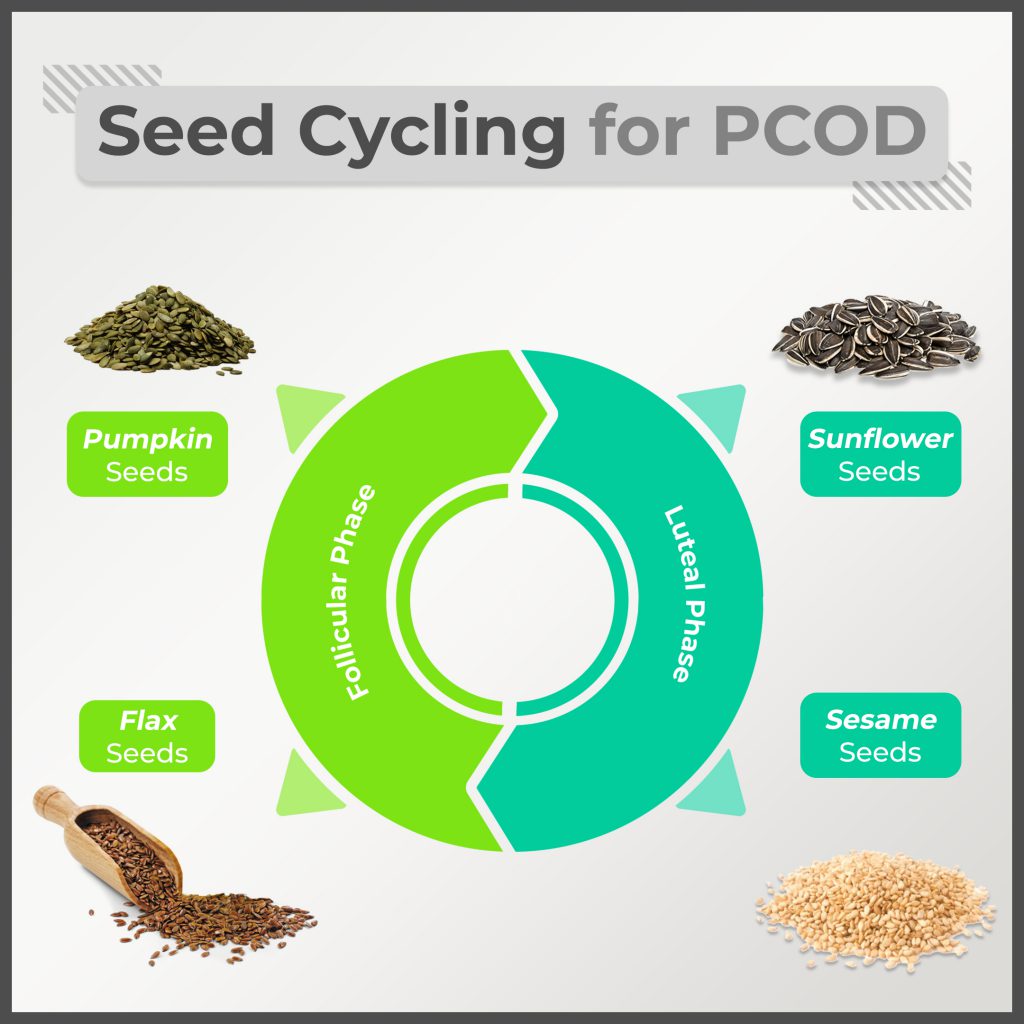
Have You Heard Of Seed Cycling For PCOD? Infano Women's Health
Seed cycling has long been used to support women's hormones by supplying them with the nutrients they need at specific phases of their cycle. I recommend seed cycling for hormone balance in both my clinic and book, Beyond the Pill, because it is an effective and gentle way to support women's hormones. In this article I'm going to help you.
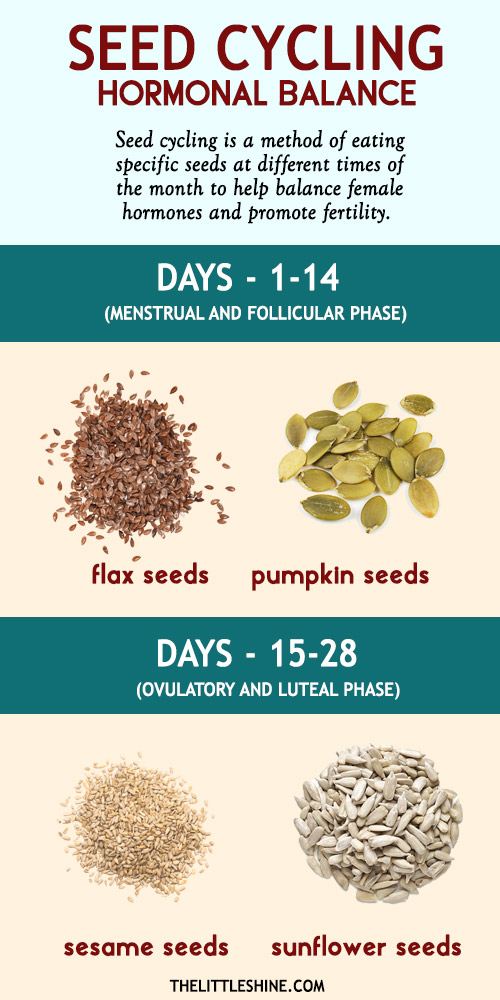
Seed Cycling For Hormonal Balance The Little Shine
Seed cycling, a practice of eating specific seeds during certain phases of the menstrual cycle, has been around for hundreds of years, but it's recently picked up steam as news media, influencers, and wellness brands have begun sharing the details.This ancient practice claims to serve as a natural means of balancing a woman's hormones throughout her menstrual cycle to improve fertility and.

Seed Cycling for Hormone Health
3. Incorporate raw, ground seeds in tasty recipes. You may picture yourself snacking on sunflower seeds and sprinkling sesame seeds onto your stir-fry dishes as part of seed cycling. While these are generally healthy choices, those following seed cycling must get creative to consume seeds in their raw, ground form.

Why You Should Consider Seed Cycling to Balance Your Hormones I Love
For seed cycling, you can simply follow the chart in the post to determine which seeds to take and when, as you mentioned. It does not matter if the sesame seeds are black or white. Reply. shifa says. December 10, 2020 at 10:37 pm. Hi Ally! Thank you for the beautiful content. My curious mind wobbling here.
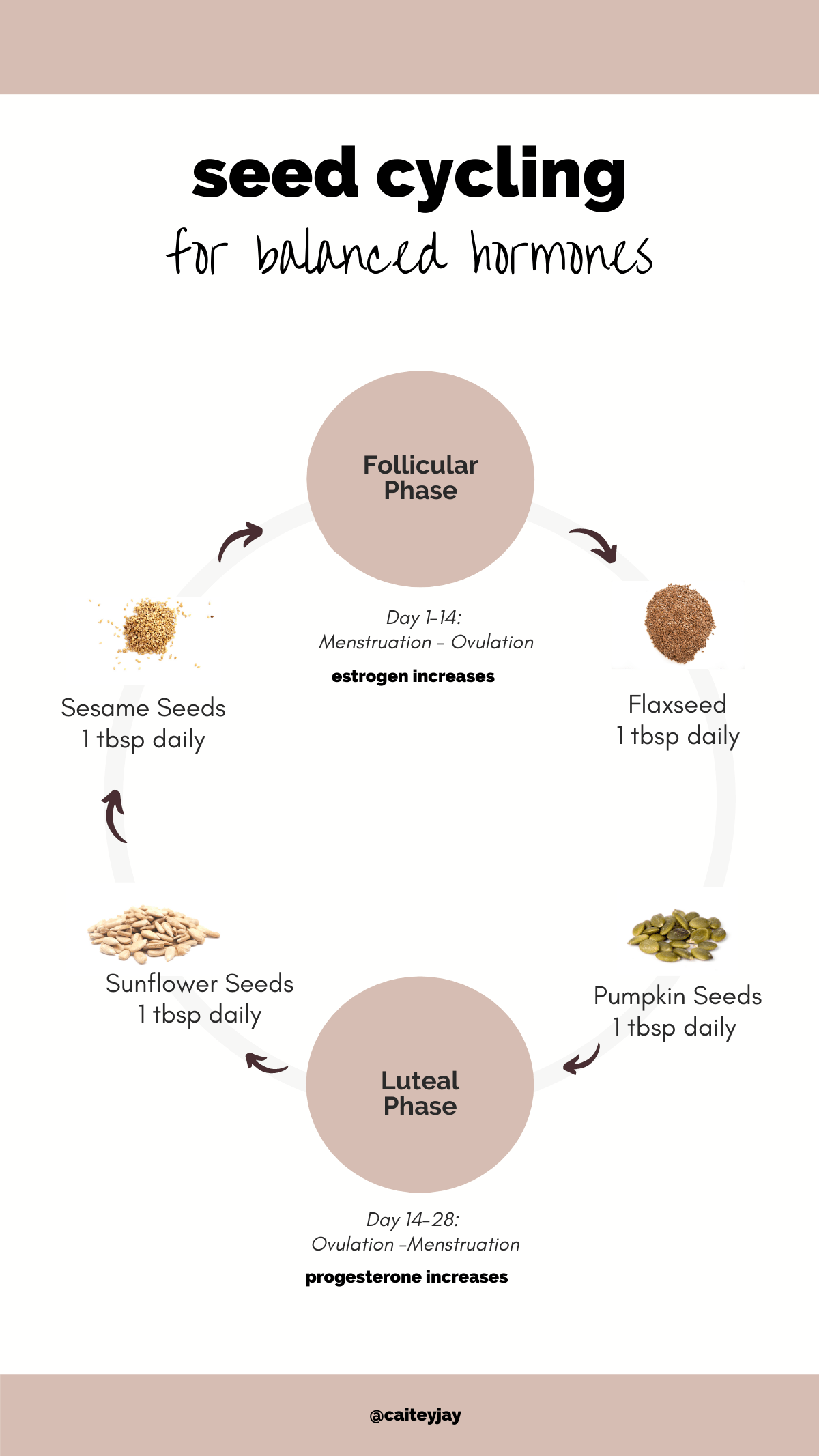
seedcyclingchartblog1 Caitey Jay
Seed cycling is a smart way to consume nutrient-dense seeds in a way that supports both your hormones and your gut microbiome.³ The seeds used for this contain key nutrients such as magnesium, zinc, and tryptophan that are essential for hormonal balance. During your follicular phase (days 1-14 of your cycle), a blend of flax and pumpkin seeds.

Pin by Dbnicegirl Designs on Health & WellBeing Seed cycling
Seed Cycling Chart This seed cycling chart quickly shows which seeds to eat and when. Continue reading below the chart for a more detailed explanation. Phase Days Seeds Amount Follicular 1 - 14 Flaxseeds (ground) Pumpkin seeds 1 to 2 Tablespoons Luteal 15 - 28 Sesame seeds (ground) Sunflower seeds (ground) 1 to 2 Tablespoons Eat flaxseeds and.

Seed Cycling Chart Drawe
Sesame seeds are also rich in Vitamin E. The seed cycling process involves: Consuming 1 scoop (2 tablespoons) of the Phase 1 Blend during the Follicular Phase (days 1-14) or on the first day of the new moon and continuing for the 14 days following. Consuming 1 scoop (2 tablespoons) Phase 2 Blend during the Luteal Phase (days 15-30) or on the.
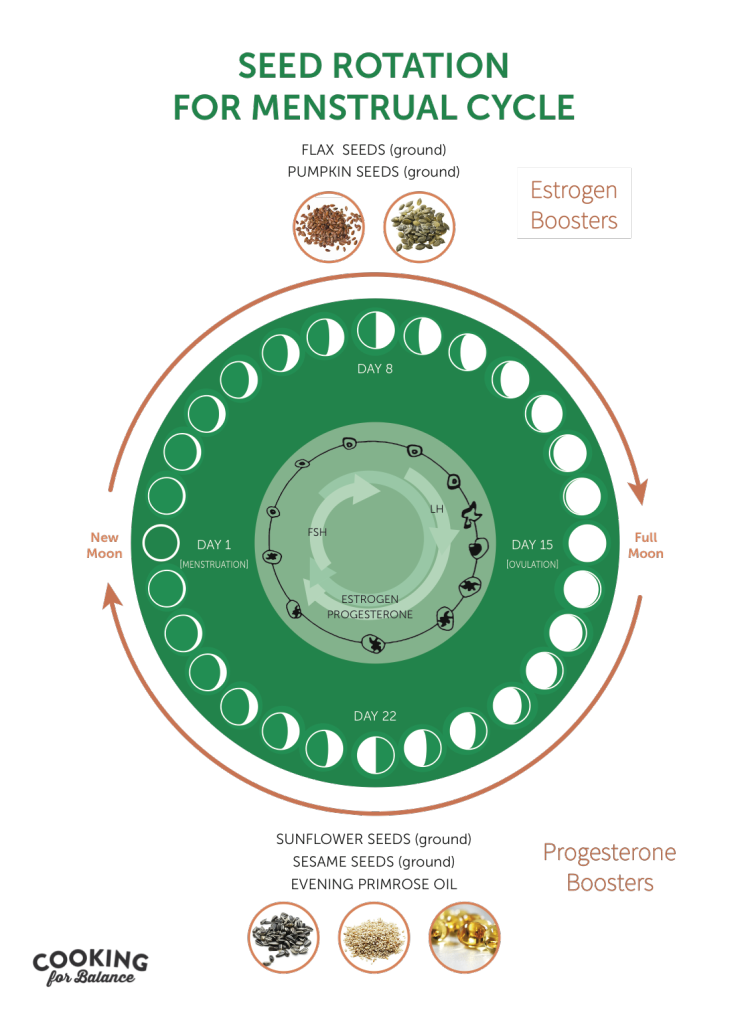
Seed Cycling to Balance Pre & Post Menopausal Hormones Dr. Jolene
How to do seed cycling using flax, pumpkin, sesame and sunflower seeds. Seed cycling is a simple, yet powerful addition to any hormone balancing journey.. I chart my cycles with FAM, temperatures and cervical fluid, etc. Anyway, I started seed cycling this past cycle and my cycle's temps were great, nice clear temp shift, high sustained.

Seed Cycling for Balancing your Hormones Sprig & Vine Healthy
It is thought that seed cycling has the potential to natural support two main sex hormones: estrogen and progesterone. Hormones are complex, and seed cycling is unlikely to cure hormonal issues like PCOS and fertility complications. However, seed cycling provides a natural and gentle way to support women's hormonal health.

Seed Cycling 101 — Petal & Thorn Naturopathic Clinic
Start day 15 of seed cycling on the first day of the full moon. Switch the seeds from flax and pumpkin to 1 tbsp of ground sesame and 1 tbsp of ground sunflower. Continue supplementing the sunflower seeds and sesame seeds daily for the next two weeks, until the day of the new moon. Use sunflower and sesame to help boost progesterone production.
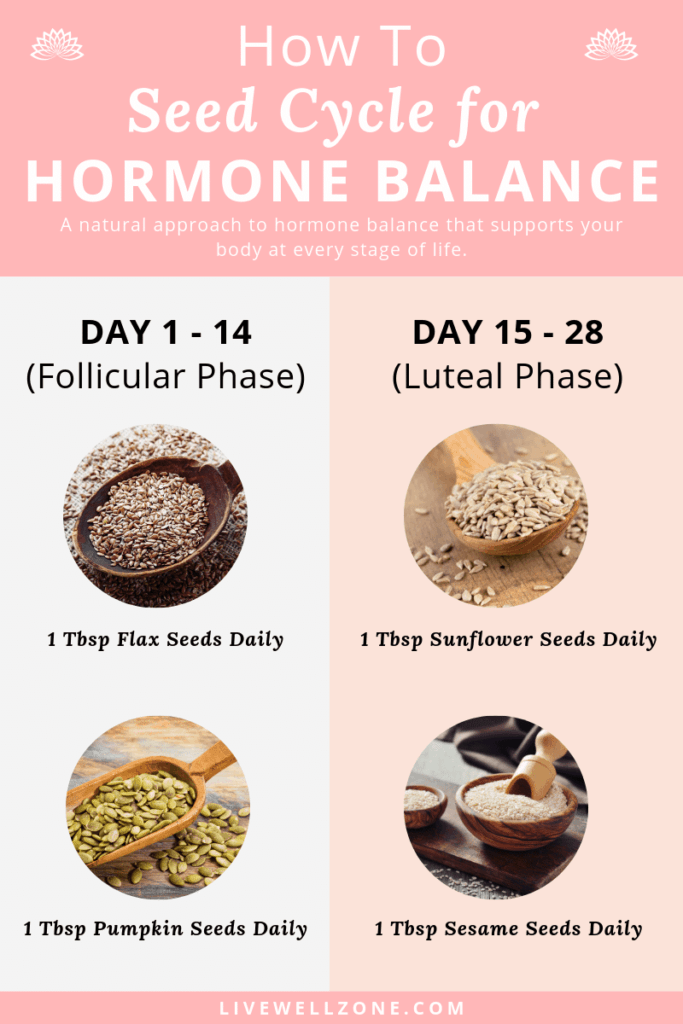
A Beginner's Guide to Seed Cycling for Hormone Balance
WHAT IS SEED CYCLING? Seed cycling is a growing wellness trend allegedly popularized in 2012 by naturopathic practitioner Lindsey Jesswein as a way to support the female endocrine system through its hormone fluctuations by consuming different seeds during different phases of the menstrual cycle.. The practice of rotating four different seeds (pumpkin, flax, sesame and sunflower) between the.

Seed Cycling for Amenorrhea, Irregular Periods, PMS or Menopause
Summary. in seed cycling, you eat certain seeds throughout the month to affect the levels of estrogen and progesterone in your body. It is a health trend that claims to balance hormone levels, boost fertility, and ease menopause symptoms. There is no evidence to support these claims. However, seed cycling does not appear to be dangerous.

Seed Cycling
Seed cycling advocates claim that it helps balance hormones and helps with fertility, PMS, and irregular periods. While some of the nutrients found in seeds do play a role in female hormones like estrogen and progesterone, there is no solid evidence that the act of seed cycling specifically helps balance hormones. You may have heard the hype.

Have You Heard Of Seed Cycling? Move Nourish Believe Seed cycling
DAYS 15-28 OF YOUR CYCLE (OR OVULATION TO MENSTRUATION) 1-2 tablespoons ground sunflower seeds. 1-2 tablespoons ground sesame seeds. If you don't have a 28-day menstrual cycle, don't worry! Many women don't. It's best to follow the 14 day cycle for each phase of seeds.